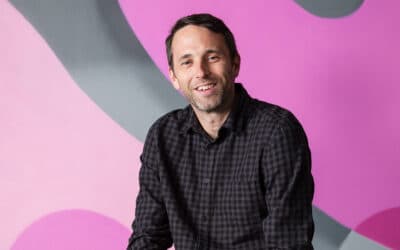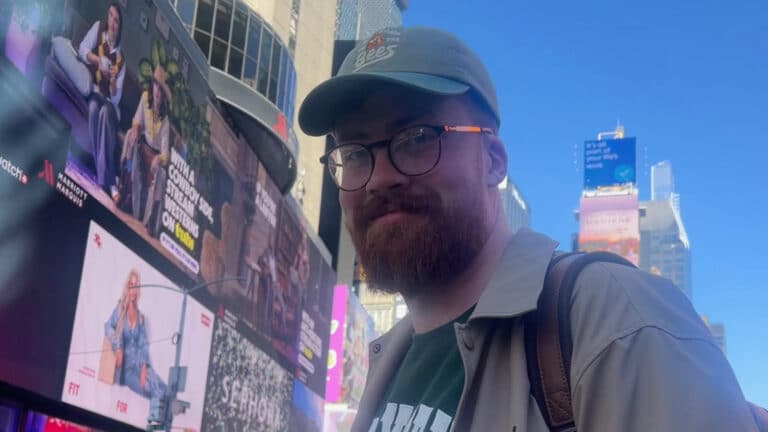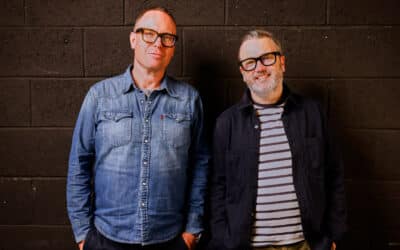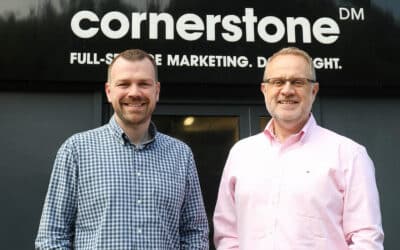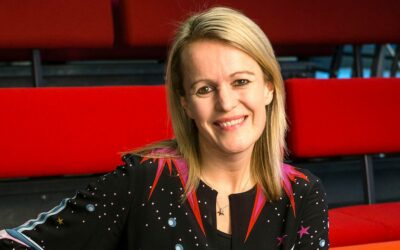Ben Wild is the founder of BWS, a globally recognised creative studio specialising in animation, video production, and digital storytelling, based in Manchester.
Starting as a self-taught artist, Ben has built his studio into an industry leader, working with high-profile clients such as McLaren, CBBC, and New Balance.
Ben founded the studio, originally known as Ben Wild Studios, in 2019. By 2024, it had rebranded to BWS to reflect its evolution into a creative powerhouse with a growing global reputation. Under his leadership, the studio has expanded its portfolio to include projects like a FIFA Plus World Cup documentary, live illustrations for Gucci, and even animations for Diana Ross’s music video.
From overcoming challenges to building a creative empire, Ben Wild shares his professional journey and advice for aspiring animators and creatives.
How did you first get into your industry?
I’ve always been passionate about art and animation. After leaving school, I taught myself the skills I needed by taking advantage of online resources and experimenting with different creative tools. My big break came when I started pitching to potential clients and landed my first few projects, which gave me the confidence to establish my own studio.
What do you love about your job?
I love the variety of work and the creative freedom it allows. One day, I’m designing animations for a FIFA documentary, and the next, I’m working with Gucci to create live illustrations. It’s incredibly rewarding to see ideas come to life and make an impact for some of the biggest names in the industry.
Who—or what—has inspired you in your career?
I’m inspired by innovative storytelling and creative risk-takers. Whether it’s an artist, a filmmaker, or even a brand campaign, I find inspiration in people who push boundaries. My clients also inspire me—they trust me to take their vision and turn it into something extraordinary, which drives me to keep innovating.
What are the biggest challenges about your job?
Scaling the business while maintaining creativity has been a challenge. As the studio has grown, I’ve had to learn to balance the demands of running a business with staying hands-on in the creative process. It’s a learning curve, but one I’ve embraced.
What skills have been most crucial to your career so far?
Being self-motivated and adaptable has been key. As a self-taught artist, I had to figure out how to build my skills and keep up with trends. Those traits have carried through as I’ve grown the business, helping me navigate challenges and seize new opportunities.
What was your first project, and what could someone starting out in animation expect to work on?
One of my first big projects was creating animations for CBBC, which was a huge milestone for me. Someone starting out in animation today might begin with smaller freelance projects or by working with local businesses. It’s important to build a portfolio and get your name out there.
What education or training would be most useful for someone looking to follow your career path?
You don’t necessarily need formal education, though it can help. Online courses and resources are incredibly valuable. The key is to keep learning and experimenting—animation is a field where your portfolio speaks louder than your qualifications.
What advice would you have for someone looking to follow your path?
Two things stand out for me.
First, be proactive. If you have a vision for what you want to do, start now—whether it’s building a portfolio, reaching out to potential clients, or learning a new skill.
Second, don’t be afraid to take risks. Some of my biggest opportunities have come from stepping out of my comfort zone, whether pitching to a global brand or tackling a project I’d never done before.
Ben Wild’s journey from self-taught animator to the founder of a globally recognised studio showcases the power of passion, hard work, and creativity. His story is a reminder that non-traditional paths can lead to extraordinary success.

